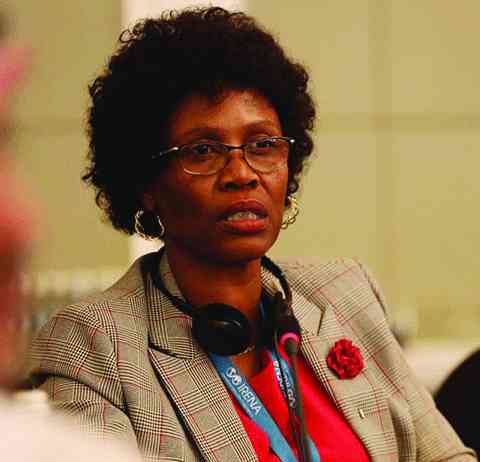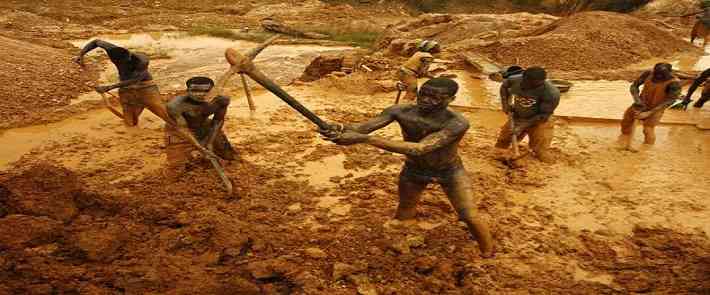
ZIMBABWE has been making strides to curb loadshedding over the years. Last year, it brought back Hwange power station’s units 7 and 8 online as a way to improve power generation. The Ministry of Energy has also been pushing for investments into the renewable energy sector. Our senior reporter Freeman Makopa (FM) caught up with the permanent secretary in the Ministry of Energy and Power Development Gloria Magombo (GM, pictured) to discuss these issues. Below are excerpts from the interview:
FM: What was your main message to investors during the just-ended Zimbabwe International Trade Fair (ZITF)?
GM: The ZITF always presents an opportunity for investors, who come to our stand looking for opportunities.
We have said Zimbabwe, especially the energy sector, is open for business.
There are various options through which they can come into the energy sector and I think that is what presents a lot of exciting opportunities.
I think we are aware that with the current climate change and this serious drought we have had, we lost some capacity from Kariba power station.
FM: You mentioned that Zimbabwe has lost some capacity at Kariba. Tell us about the power supply situation.
GM: We are fortunate that the loss of capacity in Kariba happened after Hwange 7 and 8 had been fully commissioned and up and running, which has sort of alleviated the challenge.
- Power cuts spur Zimbabwe’s green energy revolution
- Power cuts spur Zimbabwe’s green energy revolution
- Electricity imports cost Zimbabwe US$200 million
- ‘Zimbabwe will be a net power exporter’
Keep Reading
Power is still there, depending on Hwange units 1 to 6 availability. I am sure you are aware that Hwange units 1 to 6 remain the old plant.
We have taken out Unit 5. We are still looking at the full re-rehabilitation of Unit 5.
But the other units are running. However, at times we have Unit 2 (running), at times we have Unit 3 (running).
Until we have the opportunity to re-power all of them, this challenge will be coming and going because at one time, we will be having 400 megawatts (MW). At one time we were having 300MW, or at times 200.
FM: Are there any opportunities in the renewable sector?
GM: When I speak about opportunities, I think they are there in a number of ways.
Now we have companies who are very keen to take on board renewable energy technology under what we refer to as industrial and commercial systems commercial.
They call them C&I systems. We have seen a lot of mining companies putting them up. Currently, you are looking at some mining companies (that have) commissioned.
I think the latest, which was commissioned in Bikita was about 12MW and with a 6MW hour battery for their operations.
Tanganda Estates has also built over 4,4MW. There is a lot of construction within the customers’ side who have taken it upon themselves to ensure their own energy security.
But by so doing, they have alleviated pressure from the Zesa grid.
For an investor, you can come in and then target these commercial and industrial customers.
Yes, to supply them as an IPP (independent power producer). Our structures now allow for IPPs to sell either to ZETDC or to sell directly to customers.
FM: Is the mining sector embracing renewable energy?
GM: A lot of mines have already (embraced). Some have already been licenced to ensure that their metals are green.
The reality is this, the regulator did award them a fairly cost reflective tariff late last year.
We believe that it has capacitated (Zesa) to be able to buy power and sell this power to their customers.
We are failing to do maintenance of their old equipment because we were not collecting sufficient revenues.
And now with that award by the regulator, we expect them now to prioritise the maintenance of systems and provide a better service.
It is going to be a process. But we believe it has started now. Over the next year or two we should see a fully improved service.
FM: You once revealed that 300 000 customers are not yet connected
GM: We are aware that Zesa has over 300 000 customers who still need to be connected.
So once that connection is found, demand for power will increase. That presents an opportunity for new capacity to be built and added to the grid.
There are opportunities for energy efficiency. With industry increasing capacity utilisation, it also helps them to reduce the unit cost of production.
If you are producing at a lower capacity, your power consumption tends to be higher. Energy efficiency is the way to go.
Even though there could be a shortage, there is an opportunity to create a virtual power station by just them auditing their own operations and looking at opportunities where they can reduce costs.
For domestic consumers, this really starts from simple things like switching off switches and using the appropriate amount of energy.
FM: Tell us more about IPPs?
GM: I am sure you are aware that launched the government project support agreement. This was given to some of the IPPs.
They have already completed the review and they are ready to sign.
There will be an announcement of these signings very soon in terms of moving on to the next level where they are satisfied with the guarantees, which government is offering them.
I think it was targeting an initial amount of about 271 MW. In some ways, we are finalising the negotiation.
This is meant to improve on the enabling environment for private sector participation through IPPs.
We have also been working with development partners to develop a clean cooking strategy.
From the census of 2022, it was very clear that the majority of the people are still using firewood.
They need for us to come up with a clear strategy in terms of how we optimise, even if it is the use of firewood.
We also assist them to build stoves which can extract smoke from kitchens through very simple mechanisms.
FM: Why are we emphasising biogas?
GM: We are saying for rural communities who have feedstock for their biogas, it is more sustainable because once they produce biogas the slurry is then used as fertilizer for their gardens.
I am sure you have seen the report which was done by Invictus (gas explorer).
They are highlighting samples, which have been showing very good potential estimates of what is expected, especially on the light oil potential. For us, that is very exciting.
FM: What are some of the challenges facing the sector?
GM: El Niño has had a negative impact, hence we are calling for this energy efficiency, creation of a virtual power station, the coming in of commercial and industrial projects, which we expect. I think by the end of this year we are expecting over 100MW of new capacity coming into the system.
FM: On Hwange 7 and 8, how do you intend to repay the loan?
GM: Hwange 7 and 8 was built through a PPP (public private partnership) agreement between Power China and ZPC (Zimbabwe Power Company), with ZPC taking 64% and Power China taking 36%. China Power built the project.
The joint venture will run that power station, so it is selling the power through a power purchase agreement to ZETDC (Zimbabwe Electricity Transmission and Distribution Company).
From the proceeds of that sale to ZETDC, that is how they are paying back the loan.
FM: IPPs were complaining that they were being told to accept the local currency.
GM: While as the Ministry of Energy, we do represent government, we work with other ministries, like the Ministry of Finance, to get them to assist IPPs, especially with access to foreign currency.
What we have done is the ministry is where IPPs were being paid in local currency, we were then recommending through the Ministry of Finance that they be prioritised in allocation during the time when the auction was operational so that they are able to buy their spares.
As a ministry, we obviously have been assisting them to get prioritised.
FM: On the issue of renewable energy, do we have international investors who we have since approached government with interest to invest?
GM: The minister was recently in Abu Dhabi. There is one company called Sky Power. We signed two or three years ago, a 500MW (deal) two or three years ago.







